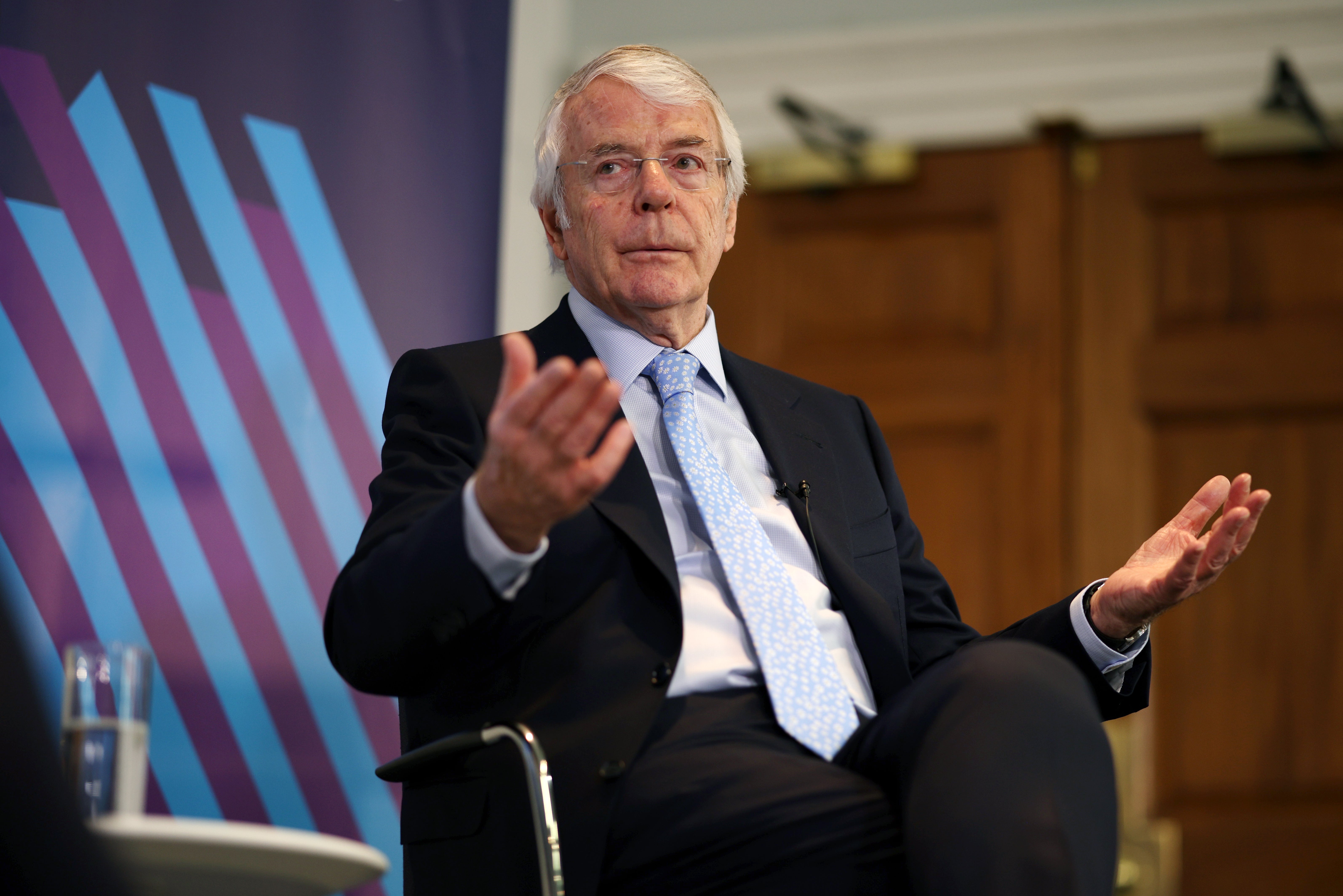John Major doesn’t think much of Boris Johnson – but he couldn’t say why
The former prime minister has become a national treasure by adopting every conventional view of the metropolitan liberal Remainer elite, writes John Rentoul


Sir John Major is the personification of the Brexit realignment of politics. The reviled agent of soft Thatcherism, who presided over sleaze and drift in the 1990s, he has transformed himself into the embodiment of every conventional view of the metropolitan liberal Remainer elite.
He emerged, butterfly-like, from his chrysalis, some time ago, so the impact of his speech today was a bit like that of a butterfly trying to stop the Boris Johnson juggernaut – his criticisms had already been discounted. That meant he had to raise the rhetorical temperature in an attempt to sting like a bee, but that was rather out of character for him, and so he became confused.
In the speech, he said categorically: “At No 10, the prime minister and officials broke lockdown laws.” When he was asked afterwards if he thought a prime minister who broke the law should resign, he said yes, and then that he didn’t want to prejudge the question of whether Johnson had actually broken the law or not.
He spent a section of the speech appearing to accuse Johnson of lying, without ever naming him or saying what the lies were, but in answer to questions afterwards said that a prime minister who lied to parliament had to resign. Pressed for further and better particulars, he declined to elaborate.
It didn’t help his case that he was surprisingly imprecise about what the word “lie” means, saying in his speech that “deliberate lies to parliament have been fatal to political careers – and must always be so”. But the usual meaning of the word is that it is a deliberate falsehood, and the ministerial code speaks of ministers who “knowingly mislead parliament” being expected to offer their resignation.
Presumably, Sir John thinks the prime minister knowingly misled parliament when he said on 1 December last year that “all guidance was followed completely in No 10”, because that is what all right-thinking Johnsonphobes think, but it was disappointing that he wasn’t prepared to say so, and show his working.
As it was, the rest of his speech was such a rehearsal of the conventional pieties that it might as well have been a Liberal Democrat press release. It was certainly too Remain-y to be a Labour propaganda coup.
He thought proroguing parliament in 2019 was a bad idea. Indeed, it was such a bad idea that he was going to challenge the government in court, only Gina Miller got there first. He disagreed with threatening to break international law, although he admitted that it was never actually broken. He disagreed with cutting overseas aid and he even had a go at Johnson for failing to ensure that Liz Truss leapt to the judges’ defence when the Daily Mail labelled them “enemies of the people”.
He defended the civil service and the BBC. Afterwards, he even refused to answer a question about proportional representation, knowing full well it would distract from his central anti-Johnson message, but it is obvious he agrees with that as well.
In the speech, he said, “we British are a kindly people,” and lectured Johnson on his obligations to asylum seekers – while saying “I do sympathise with the awful problem faced by the government”.
Most of these are not wicked views to hold, but to hold the complete set is a remarkable achievement for a former Tory leader. Perhaps it was the only way to try to recover some ground from the time when Sir John was the most unpopular prime minister in British opinion-polling history, with a net satisfaction rating of minus 59 in August 1994 – markedly more unpopular than even Johnson now, on minus 46.
To keep up to speed with all the latest opinions and comment sign up to our free weekly Voices Dispatches newsletter by clicking here
Sir John’s only departure from the litany of fashionable causes was his reference to the sacred principle of “one man, one vote”. This was in the section devoted to state funding of political parties – “the lesser of the evils” – in which he said “essential fairness should not risk being undermined by any one man and his money”. Sir John was born in 1943.
Like most right-thinking people, he probably also thinks it is bad form for past prime ministers to criticise their successors, and when Thatcher did it to him she was certainly being self-indulgent and undemocratic, but in the present case he thinks there is a moral emergency.
Well, maybe there is, but I would rather not take lectures about it from someone who has transformed his reputation as a useless prime minister into that of national treasure by adopting every media-friendly opinion since the British people chucked him out of office.






Join our commenting forum
Join thought-provoking conversations, follow other Independent readers and see their replies
Comments